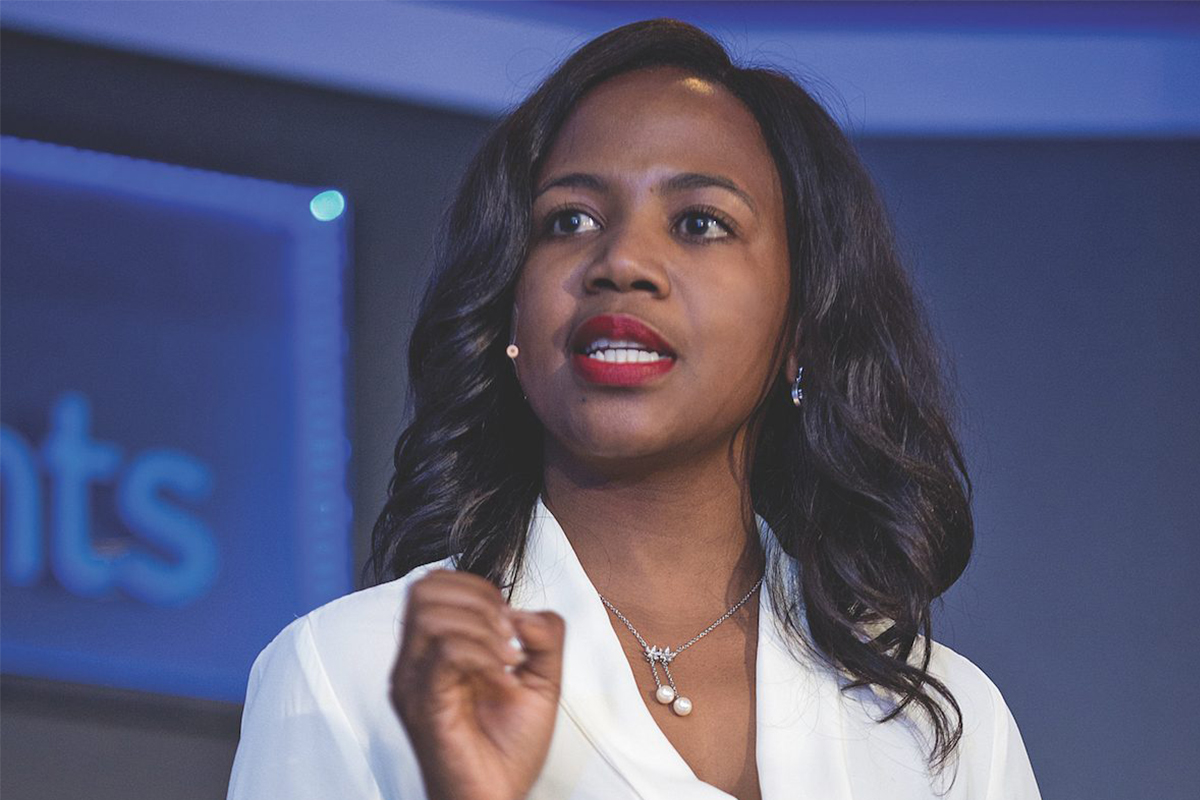As one of South Africa’s most reputable investment management companies, Sanlam Investment Management (SIM) offers a broad range of services for clients, including equities, fixed interest, balanced and absolute return strategies. With the aim to protect and grow clients’ wealth by modernising and futureproofing the company, SIM is embarking on a number of initiatives including “business intelligence projects as well as devising optimal client solutions”.
“It’s about ensuring we become an organisation that is fit in data analysis, data capturing, data mining and making decisions on the back of data analytics effectively,” CEO Azola Mayekiso tells Modern Mogul. As a client-centric company, SIM must become a digital organisation, she adds. “I believe that’s really going to futureproof this business. It’s not just confined to management information systems. It also catapults into how we report to our clients; it talks to how we incorporate things like artificial intelligence and big data into how we manage portfolios for clients.”

Azola Mayekiso, CEO of Sanlam Investment Management
Azola began her career as Associate Investment Consultant with Alexander Forbes Financial Servicesin 2003. She then enrolled to study with the Gordon Institute of Business Science, based in Johannesburg, the following year. While there, she realised she wanted to further her studies and secured a scholarship with Dutch government agency Nuffic to do her masters studies at the Hanze University of Applied Sciences in The Netherlands, as well as at Anglia Ruskin University in the UK.
Having finished her studies in 2008, she returned to South Africa to work for the Vunani Group for eight years. Now, as CEO of SIM, she identifies a number of opportunities for the company in the immediate future, one of which is “positioning the company for growth on the back of the transformation story”.
“Assets are now being directed, really, to transformed organisations … ultimately it’s one of the things that will ensure this business is sustainable going into the future,” she adds.
“A lot of the time, when executives talk about business transformation, what they’re talking about is business intelligence projects, modernising organisations, and ensuring that they are digitally savvy,” says Azola. “In the South African context, when we talk about business transformation, we are also talking about fostering inclusivity.”
Azola addresses the consequences of these policies, ensuring equal representation at SIM. “We are passionate about making sure that there is adequate representation across all population categories.” Currently, hiring African talent is a tenet of SIM’s contribution to transformation and enterprise development, with the business actively looking to partner with black-owned businesses to ensure they are assisted with the development and expansion of their operations.
“We advanced, for example, interest-free loans to some of them, and some we support through our multi-management business,” Azola explains. She also committed that the company will place 25% of its 2018 brokerage budget with African brokers; a 10% increase from when she joined the company in 2016.
“We are passionate about making sure that there is adequate representation across all populations.”
SIM prides itself on its prudent internal management and culture, and Azola rebukes the notion that opportunities are the reserve of African talent only. “From a leadership position, it’s important to manage expectations, and misconceptions, because the moment you say to people that the business is bringing on diverse talent, there can be this tendency to think that an opportunity is gone forever.”
Azola insists however that this isn’t the case, and that the aim is to expand the excellence her team can offer. “The progression of individuals within the business is very much dependent on their own contribution and performance,” she points out. “We are a performance-based organisation. We reward effort. We reward positive outcomes.
“The progression of individuals within the business is very much dependent on their own contribution and performance.”
“When it comes to opportunities within SIM, I’m looking at the people who are applying themselves and are passionate. If they apply themselves and deliver, they will be rewarded accordingly.”
Azola emphasises a “customer-centric” approach, reflecting the reality that SIM is “acutely aware that we exist at the behest of our customers”. In terms of services offered, that has meant classifying the risks of funds and recommending them appropriately. For example, those looking for low returns at low risks can pick conservative options, while those seeking maximum returns can choose more aggressive options with higher returns and commensurate risk.
“Being customer-centric means that the customer is at the centre of anything and everything that we do,” she says. “Whether we are talking about the investment reports that we generate for customers or the actual performance of our investments, we are ultimately delivering an outcome based on objectives that our clients are trying to fulfil.”
For SIM, this is reflected in an investment philosophy and process that prioritises rational decision-making, thorough research, and delivering fair value for customers. Advisors and investors focus on fair returns (relative to their investment objectives) as opposed to those motivated by fear or greed. Ultimately, it all comes back to the values of inclusiveness that Azola has advocated for, situating SIM not only as an ethical employer but as an ethical investor, too.
That’s not to underrate the challenges that lie ahead. When asked about the changes she’d like to see in the finance industry, she refers to the underrepresentation of Africans in finance, and her role as Deputy President at the Association of Black Securities and Investment Professionals (ABSIP), in which she is charged with driving transformation in the financial sector. “There has been some change, but the pace of change has been far too slow,” she says. “The established firms have a lot of work to do in order to make sure that their investment teams are representative of the demographics of the country.”

She also expresses concern that emerging entrepreneurs and SMEs are not receiving funding from the banking sector. “This means that effectively we are derailing our efforts to creating employment. In order for economies to grow, they need thriving SMEs, and the people that have the potential to create those businesses are not being funded. We need to find a venture capital model that works for the South African environment.
“We need to attract young, black talent into the financial sector,” she adds, “and the only way to do that is demonstrate that we are actually embracing and nurturing them. It is our duty to ensure that they see that there is a real opportunity.”






